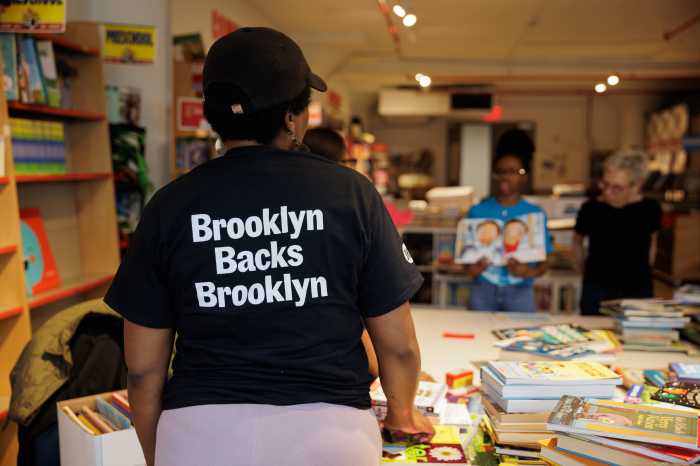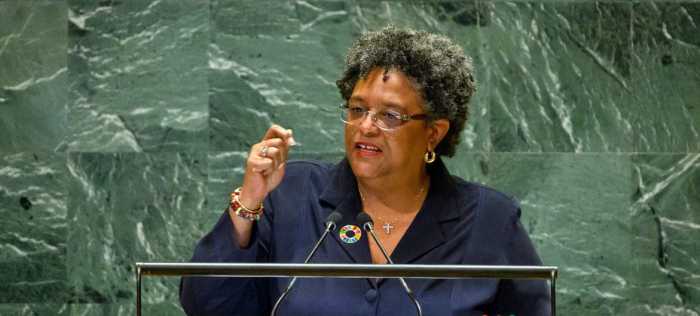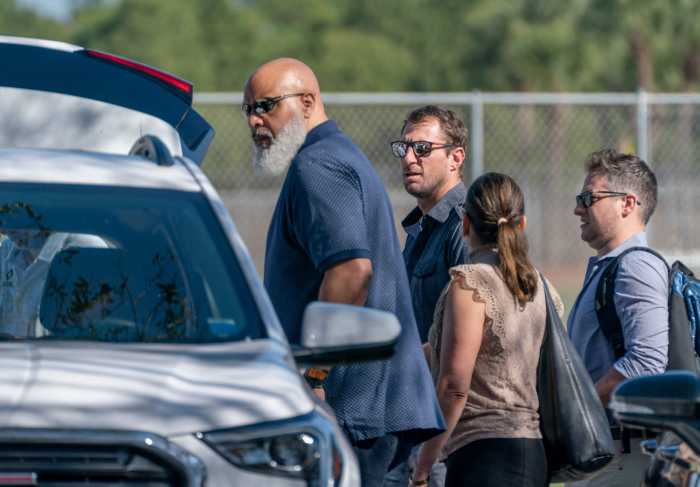The New Jersey Division of Civil Rights has handed a preliminary victory to a lesbian couple denied access to the Boardwalk Pavilion in Ocean Grove, which is owned by a religious group, the Ocean Grove Camp Meeting Association, but a second lesbian couple was denied the same ruling because by the time they applied to use the space the association had stopped renting it out for private ceremonies.
Still, the favorable ruling, issued on December 29, suggests the New Jersey Law Against Discrimination may prove effective in ensuring the access of civil union couples to public accommodations within the state.
J. Frank Vespa-Papaleo, director of the New Jersey Division of Civil Rights, issued a Finding of Probable Cause on December 29, concluding the division's investigation of a complaint filed by Harriet Bernstein and Luisa Paster. The couple had raised a public accommodations discrimination complaint against the Ocean Grove Camp Meeting Association after they were denied the right to rent the Boardwalk Pavilion for their civil union ceremony. The case now goes to a public hearing, at which an administrative judge will determine whether the anti-discrimination law has been violated and, if so, order a remedy on the couple's behalf.
In addition to banning sexual orientation and gender identity discrimination, New Jersey state law specifically forbids discrimination against civil union couples by entities that provide goods and services to the public. The investigation showed that until this controversy arose, the Ocean Grove Camp Meeting Association, which owns all the land in the Atlantic coastal town of Ocean Grove, near Asbury Park, had allowed couples to rent the Boardwalk Pavilion for wedding ceremonies, without regard to religious affiliation.
Within days of the Bernstein-Paster application to rent the space, the association adopted a defensive posture of discontinuing its policy of renting the pavilion for wedding ceremonies. When another lesbian couple, Janice Moore and Emily Sonnessa, applied to hold their civil union ceremony at the pavilion, they were told the space was no longer available for private ceremonies. Moore and Sonnessa filed their own discrimination complaint, but the Division of Civil Rights issued a No Probable Cause Finding, concluding that since the pavilion is no longer rented for any wedding ceremonies, there is no discrimination in refusing to make it available for a civil union ceremony.
The Camp Meeting Association responded to the Bernstein-Paster complaint by noting that it is a non-profit “ministry organization” that is “rooted in Methodist heritage.” As a religious association, the group argued, its property should be exempt from the requirements of the Law Against Discrimination; failing to exempt it would violate its First Amendment rights of freedom of association and free exercise of religion.
Vespa-Papaleo rejected both of these contentions. The pavilion has enjoyed a special real property tax exemption provided by the state for properties open to the public as places of public accommodation. The association had certified that when the pavilion was not being used for its own religiously-based programs, it would be open to the public on “an equal basis,” which explains the practice of not inquiring into the religious nature of wedding ceremonies held there. It is well established that religious ownership of a place of public accommodation does not exempt the place from the anti-discrimination law.
The more significant question was whether Vespa-Papaleo's decision could be squared with the First Amendment precedents created by the US Supreme Court in two gay-related cases, one involving the Boston St. Patrick's Day Parade, the other the Boy Scouts. In the Boston case, the court held that First Amendment rights of the parade organizers must prevail over the non-discrimination rights of a gay Irish group that wanted to march with its own banner. In a challenge brought to the Boy Scouts of America under New Jersey law, the court held that the state's interest in eradicating anti-gay discrimination had to bow to the expressive association rights of the Scouts, which is privileged to deny a gay man a troop leadership position.
In each case, the crux of the ruling was the right of the organization to control the nature and content of its message. The high court found that a parade is a quintessentially expressive exercise, and the organizers have a right to decide whether inclusion of a particular group dilutes or contradicts their message. The court relied on the parade case in its Boy Scout ruling, finding that the Scouts is an expressive association, formed to inculcate certain values; requiring it to refrain from anti-gay discrimination would improperly intrude on its right to control its message.
The New Jersey Division of Civil Rights found these precedents distinct from the issue at the heart of the Ocean Grove case. Vespa-Papaleo wrote that the pavilion's non-religious uses were not intended to send any particular message, and that the association voluntarily characterized the space as a public accommodation, open to all without discrimination, when it sought the property tax exemption.
Vespa-Papaleo, responding to the free exercise of religion claim, acknowledged that the association holds religious events in the pavilion, but found “that was not its exclusive purpose,” and that it is “not a religious facility.”
“Any incidental burden on a particular religious belief or practice does not raise free exercise concerns,” Vespa-Papaleo wrote, finding that New Jersey's “interest in protecting people from discrimination based on civil union status would justify the minimal impact” on the association.
If Bernstein and Paster prevail before an administrative judge and in any civil court appeal waged by the association, they may win damages for the violation of their civil rights. But the association's decision to get out of the wedding rental business entirely means that the conclusion of this case will not be an order to open up the pavilion for civil union ceremonies. However, since the association has now lost its public accommodations tax exemption and its rental income, it might conclude that it should accommodate changing reality in New Jersey by offering the space on an equal basis for both weddings and civil union ceremonies.
Both couples were represented by the American Civil Liberties Union of New Jersey and cooperating attorney Lawrence Lustberg of Gibbons, P.C.


































